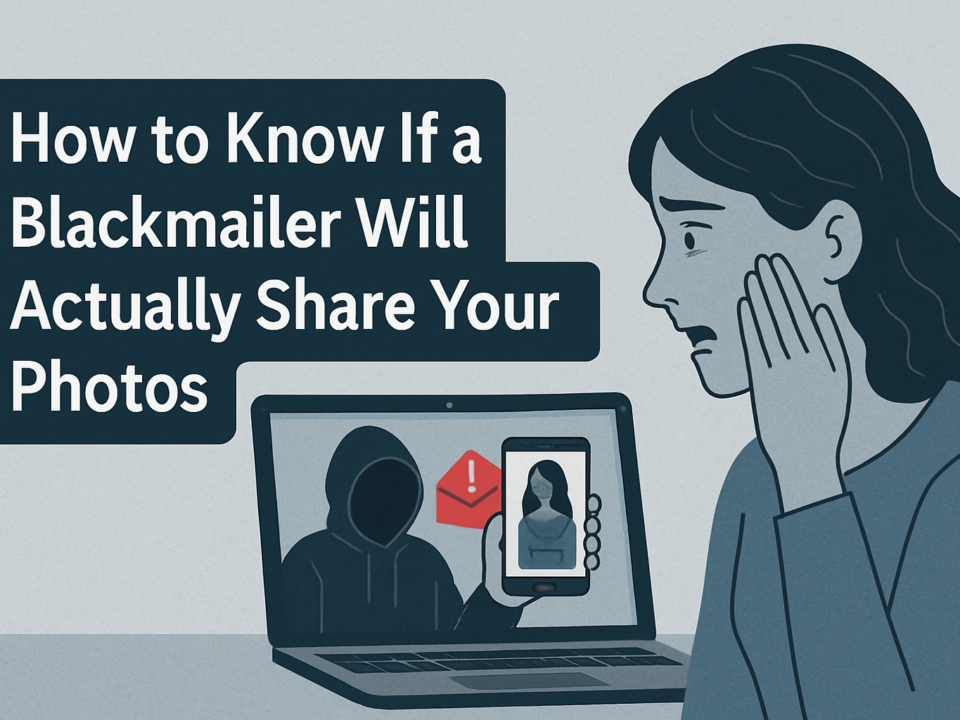
Protecting Your Privacy: Best Practices to Prevent Online Blackmail
June 5, 2024
Snapchat Sextortion: How It Happens and What You Can Do
May 26, 2025What Is Sextortion?
Sextortion is a form of online blackmail where cybercriminals threaten to expose explicit images, videos, or private information unless the victim pays money or complies with their demands. These threats often begin through social media, dating apps, or messaging platforms where the scammer gains the victim's trust before coercing them.
At Blackmail Shield, we've seen firsthand how calculated and manipulative these scammers can be — they build trust, play on emotions, and strike when the victim feels most vulnerable.
How Does Sextortion Work?
Sextortion usually follows a predictable pattern:
Initiation: The scammer contacts the victim, often pretending to be a romantic interest.
Trust Building: The victim is manipulated into sharing explicit content.
Threat Phase: The scammer demands payment, threatening to leak the content to friends, family, or online platforms.
Common Sextortion Tactics
Fake social media profiles using attractive images
Recording private video chats without consent
Phishing links disguised as image or video sharing
Threatening messages demanding urgent payment
One thing we notice is how quickly these scammers escalate — within hours, victims go from casual conversation to facing serious threats.
Who Are the Victims?
Anyone can become a victim of sextortion, regardless of age, gender, or background. However, teenagers, young adults, and professionals are often targeted due to their high online presence.
Immediate Steps If You’re a Victim
Do Not Pay: Paying doesn’t guarantee the scammer will stop.
Cut Contact: Block the scammer on all platforms.
Preserve Evidence: Take screenshots and save messages.
Report It: File a report with cybercrime authorities in your country.
Seek Help: Professional cybercrime recovery services like Blackmail Shield can guide you through safe and confidential resolution.
In our experience, the biggest mistake victims make is replying again or trying to “negotiate” — it almost always leads to more threats.
How to Protect Yourself From Sextortion
Strengthen Privacy Settings: Limit who can view your profiles and posts.
Avoid Sharing Intimate Content: Even in trusted relationships, anything shared online can be misused.
Use Strong Passwords: Protect your accounts from hacking.
Enable Two-Factor Authentication: Adds an extra layer of security.
Be Cautious of Strangers Online: Verify identities before engaging.
Why Professional Help Matters
Blackmailers often operate in organized groups or cartels, making it difficult for individuals to deal with them alone. At Blackmail Shield, we use advanced removal methods and legal guidance to:
Remove explicit content from scammer devices (using RAFT technology)
Disrupt blackmailer access to your data
Provide legal and emotional support throughout the process
Many victims tell us they feel like they're “fighting a ghost” — the scammer is faceless, fast, and relentless. That’s exactly why our team is structured to respond within minutes, not hours.
Final Thoughts
Sextortion is a growing cyber threat, but you’re not alone. Awareness, prevention, and fast action can significantly reduce damage. If you're facing this crisis, contact Blackmail Shield immediately for confidential and expert help.
Need Help Now?
Reach out to our 24/7 team at blackmailshield.com to protect your privacy and stop the blackmailer fast.




